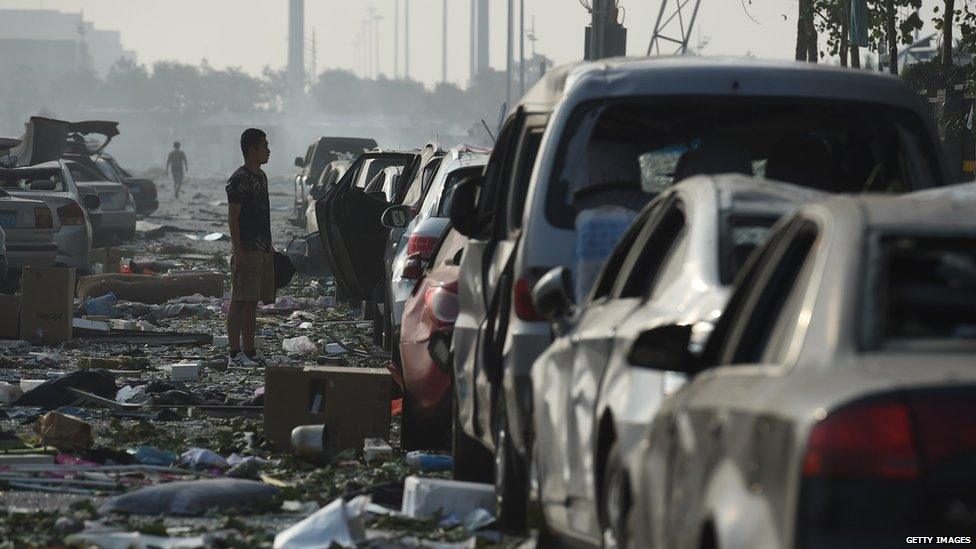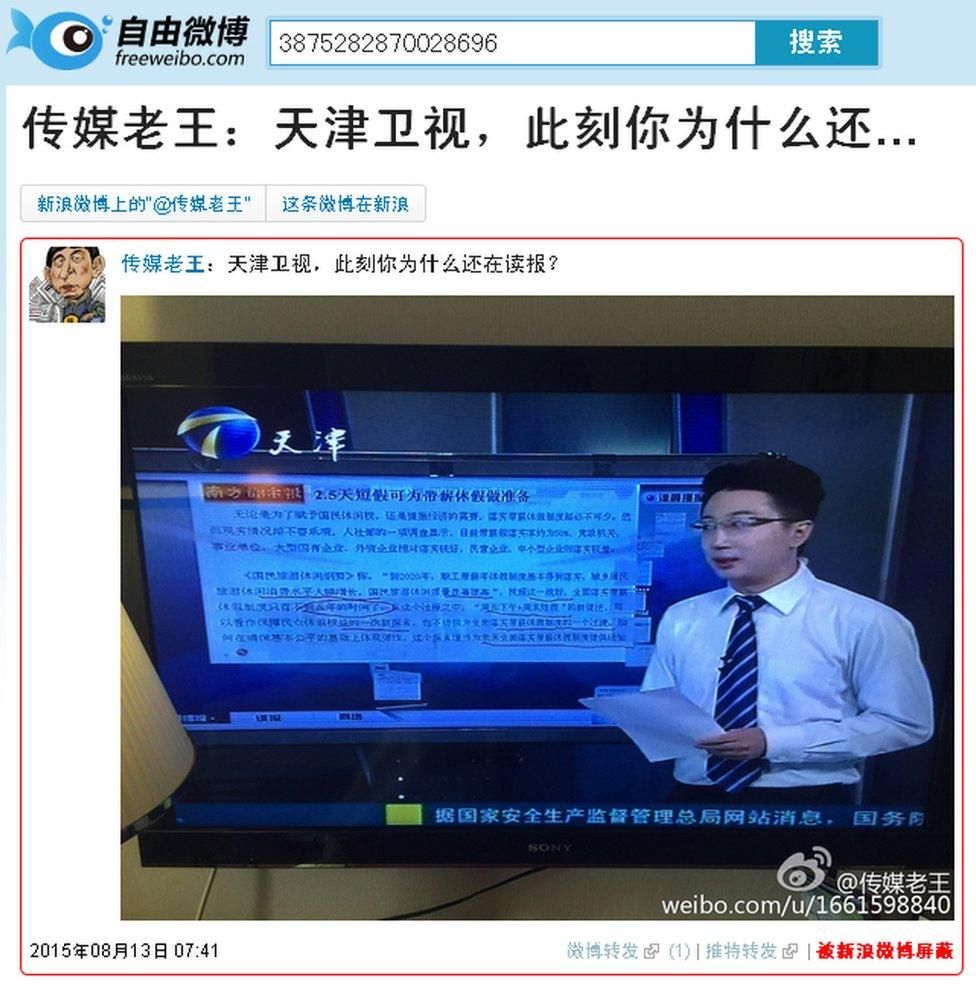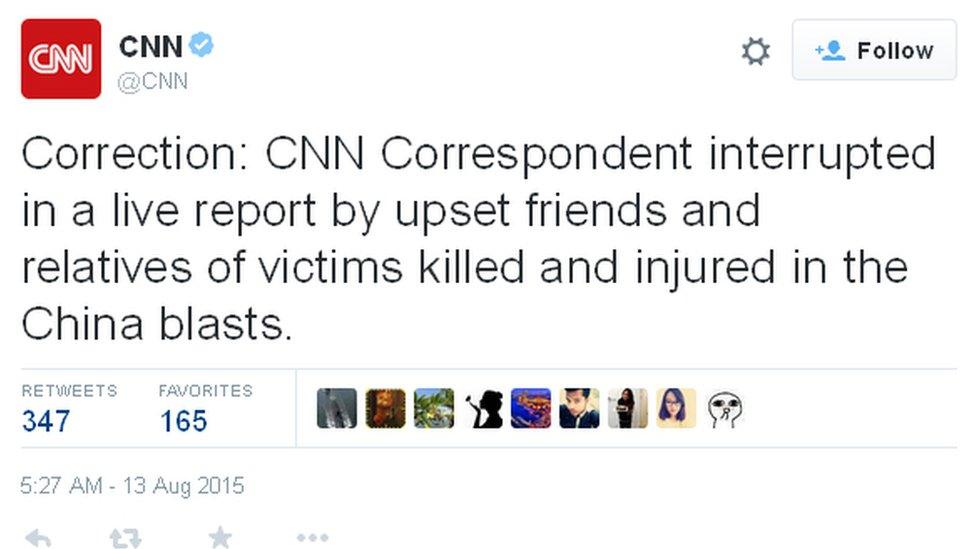China silences netizens critical of "disgraceful" blast coverage
- Published

Scenes of utter devastation following the Tianjin blasts have been reported by the international media sources
Authorities in China have over the past 24 hours silenced social media users who have criticised the coverage of the Tianjin explosions.
Posts condemning "disgraceful" local TV coverage of the two blasts on 12 August have been removed from Sina Weibo, China's Twitter-like micro-blogging platform, as have posts suggesting that local authorities restricted international media reporting on the incident.
So far, at least 50 people have been confirmed dead, and more than 500 injured, following the blasts in the port city.
The blasts have become one of the biggest talking points on Chinese social media in the last 24 hours, with Weibo posts on the explosion being viewed more than 590 million times.
More than a million users have also been actively posting about the blast.
However, according to Free Weibo, external, a website that captures deleted social media posts, messages that include the words "Tianjin" and "explosion" have also become the most censored. The website collected more than 50 posts from individual users.
"Disgraceful" TV coverage
Most posts that were censored were critical of the local broadcaster, Tianjin TV, and how it had refrained from reporting on the incident.
According to the Taiwanese newspaper Want Daily, external, Tianjin local television "only showed soap operas" after the incident. "Netizens were censored."
One user complained that Tianjin TV was showing a South Korean drama after the blast.
"I was watching Tianjin TV at 8am and they were still showing 'First Wives' Club' - I could barely breathe! I feel as though this country's media… shows an inhumane response to emergencies," posted "Xing zhi a fei", external on Weibo.
"Media pharaoh", external, a user with more than one million followers, was similarly critical.
"Tianjin TV, why are you still reading the newspaper headlines?" he wrote, posting a screenshot of a newsreader talking about an unrelated story.

Weibo user "Media pharaoh" was one of the many who expressed their dismay at the local media coverage of the disaster
User "Guilin's Xu Chunsheng", external commented that the story "should be constantly updated, not grinding to a halt. What is the media doing?"
Another Weibo user, "Ying Tian Lan", external called the TV station "disgraceful".
Netizen "Xinjing Ziran Hao" said it was as though the explosion had "shaken the world, and yet Tianjin TV has not even felt a tremor."
"Dont let foreigners report"
Others accused the local authorities of hampering international reporting of the incident.
User "Xu Fengwen", external said the blasts had "already made the world's headlines". Yet, he complained that "During a CNN interview, there were people around with Tianjin accents shouting 'delete it, delete it, this is a Tianjin people's affair."
Media organization ETtoday News Cloud, external similarly reported a CNN interview disrupted with people shouting "Don't let foreigners report on this".
CNN, external later said that its correspondent was interrupted by "upset friends and relatives of victims".

One user compared the muted coverage to that of the Sichuan earthquake in 2008.
"This reminds me of 2008; do not let the outside world know," posted "Wu Ce Li", external.
BBC Monitoring reports and analyses news from TV, radio, web and print media around the world. You can follow BBC Monitoring on Twitter, external and Facebook, external.